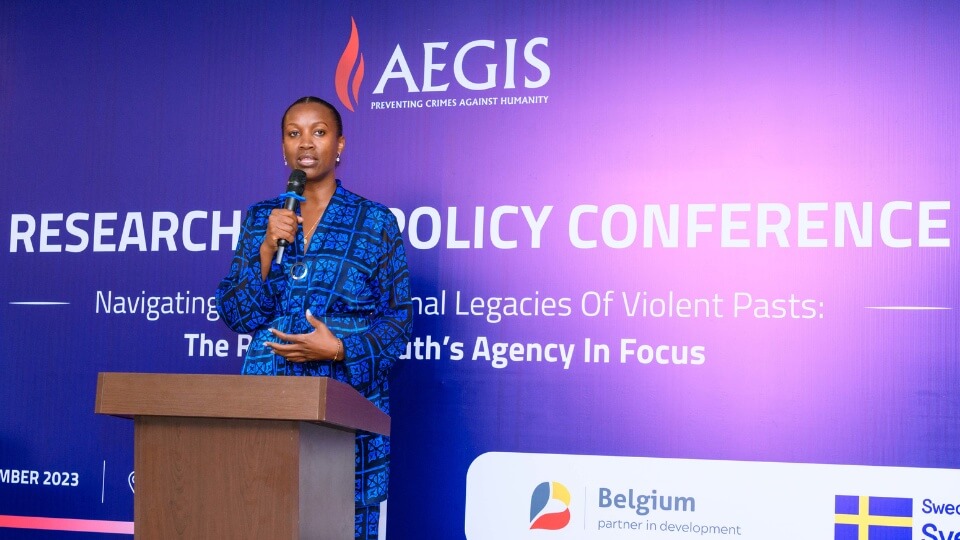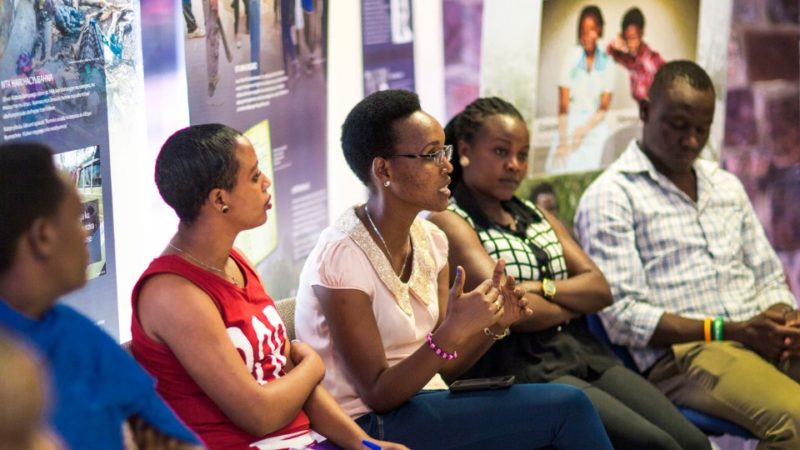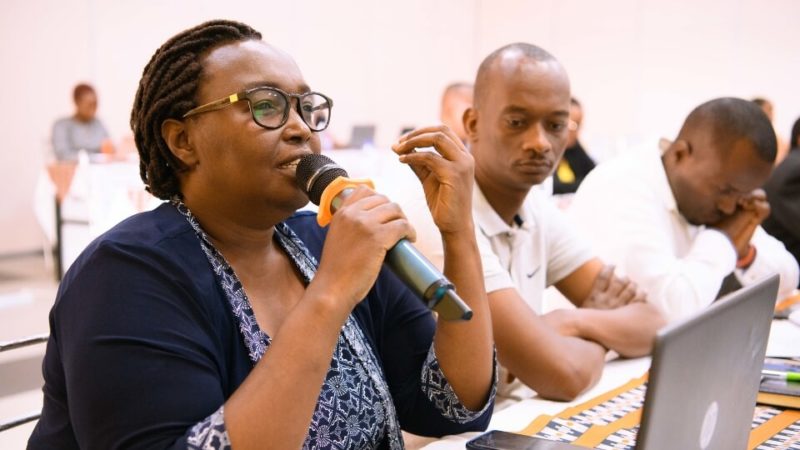

Navigating Intergenerational Legacies: Insights from Aegis Trust’s Research for Policy Conference
On 7 December, the Aegis Trust concluded its Research Week with a research for policy conference in Kigali gathering over seventy researchers, young people, policymakers, practitioners and academics under the theme ‘Navigating Intergenerational Legacies of Violent Pasts, the Rwandan Youth’s Agency in Focus’.
The conference featured lectures from experts, along with the presentation of research papers resulting from collaborations between Rwandan and international researchers initiated by Aegis with support from the Swedish International Development Cooperation Agency.
“The Research for Policy Conference is a tradition that we have been observing for eight years at Aegis Trust,” says Programme Director Sandra Shenge. “This conference brings together researchers, policy makers and youth so that they may learn from each other and discuss different themes that affect our society. This year’s theme is crucial to Aegis as we seek to know and inform the public of the impact of the 1994 Genocide against the Tutsi not only on survivors but also on the youth born in the aftermath.”
HE Johanna Teague, the Ambassador of Sweden to Rwanda, commended Rwanda’s progress post genocide and highlighted the role research plays in peacebuilding. Acknowledging the trauma’s enduring impact, she emphasized the need for further exploration into intergenerational trauma:
“I am in awe at the progress made by Rwandans almost 30 years after the Genocide. This journey brings me great pride but also touches me as I see the effects of the Genocide among the younger generation … Sweden has more than 20 years of research experience here in Rwanda, and few things are easier to understand than the trauma left behind by the Genocide against the Tutsi. Intergenerational trauma is a topic that has yet to be fully researched in Rwanda.”
The conference aimed to elevate locally produced research, connect researchers with policymakers, disseminate findings, and foster a safe space for peacebuilding and intergenerational dialogues. It provided an opportunity to explore how young people interpret the past, engage with the heavy legacy of the genocide, and define their roles in shaping the future.
Rwandan researcher Gisele Sandrine Irakoze and Dr Kirrily Pells from University College London presented research on ‘Translating and Transforming Intergenerational Trauma: Understandings, Experiences, and Responses of Rwandan Youth’. “In our research, we wanted to know how young Rwandans understand and give meaning to intergenerational trauma, how this trauma is manifested in their daily lives, but more importantly, we also wanted to know the responses needed and who is concerned when it comes to address intergenerational trauma,” Dr Pells said.
Dr Felix Ndahinda, a research advisor for the Aegis Trust, expressed satisfaction with the outcomes of the conference. “We were absolutely thrilled to see the engagement throughout the day, the different presentations by researchers. What we needed was those very critical and comprehensive comments about what was done well and what was lacking, and that was precisely the intention we had for this conference.”
Ndahinda added, “We expect researchers to continue working on their papers and publish them in journals, and we want to take this further and make policymakers aware of these papers so that these can be taken into consideration when having policy discussion.”


